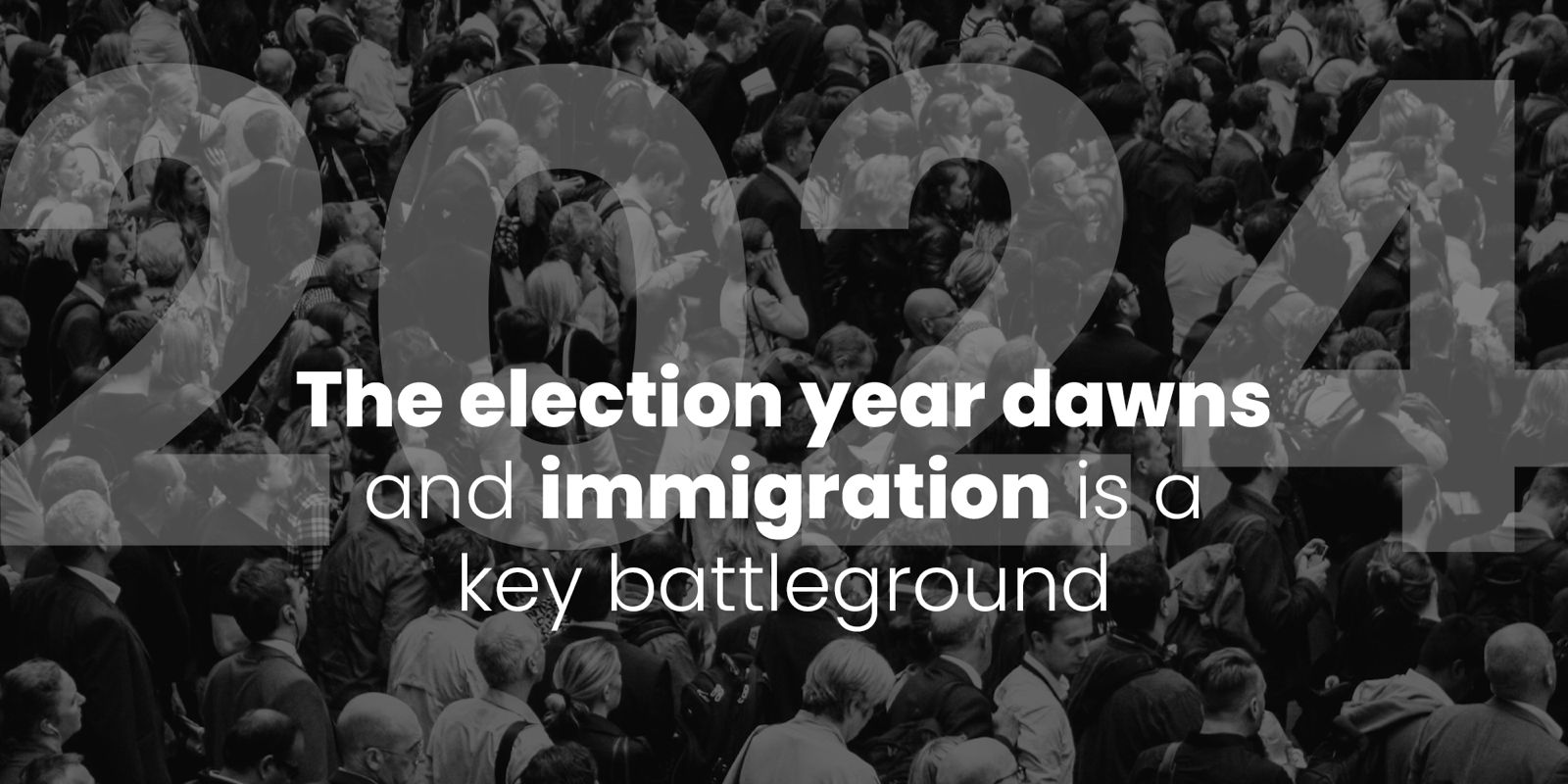
This is a preview of Migration Watch’s free weekly newsletter. Please consider signing up to the newsletter directly, you can do so here and will receive an email copy of the newsletter every Friday as soon as it is released.
We trust this newsletter reaches you in good health, and it’s not too late to extend our warm wishes for a happy and healthy New Year!
In 2024, we stand at a crucial juncture in the ongoing struggle to regain control of our borders. This week, Nigel Farage is weighing his comeback to frontline politics. No, we are not going to boo or cheer. Any politician embracing policies that will lead to lower immigration is fine by us. If Mr. Farage can influence the debate in that direction, more grease to his elbow. We have never been party-political and take great care to guard our independence. Our central concern remains the massive level of migration. In 2022 this was three times what it was in 2010. All politicians should be as concerned about this as we, along with nearly 60% of the voting public, are.
Whether Mr. Farage stages a political comeback or not, one thing is certain: the matter of legal and illegal migration is swiftly becoming a key focal point of the upcoming general election. Since 2020, the Conservatives have consistently broken their electoral promises, encouraging unrestricted immigration and abandoning fundamental controls.
Despite pledging a ‘points-based system’ to control and reduce numbers, in reality, the points-based system boosted immigration rather than curtail it. This included…
- abolishing the annual cap on non-EU workers.
- opening overseas recruitment to lower-skilled jobs, including migrant care workers.
- removing the Resident Labour Market Test, the requirement that jobs should first be advertised in the UK.
- lowering the general salary threshold from £30,000 to £25,600.
- outsourcing student admissions to British universities; and
- allowing international students to remain in the UK for up to two years after graduating.
Before rolling out the post-Brexit immigration plan, Conservative ministers vowed to turn the UK into a ‘magnet for the best and brightest,’ promising fewer lower-skilled workers and an overall drop in numbers. But the reality is starkly different, with net migration skyrocketing from 219,000 in 2019 to a staggering 745,000 in 2022.
Labour has been vocal about restricting both legal and illegal immigration, with Darren Jones MP, the shadow chief secretary to the Treasury, expressing the party’s intention to bring net migration back to 200,000. Forgive us for doubting that Labour will do any such thing. Their proposals thus far are little different from those of the Tories. There is no firm commitment to cap the number of visas. While their proposals on how they would deal with illegal immigration, such as a ‘deal’ with the EU on illegal migrants and abandoning the Rwanda scheme, will very likely result in much higher levels of illegal immigration. Indeed, internal party dynamics could push for an increase in immigration levels.
This is a preview of Migration Watch’s free weekly newsletter. Please consider signing up to the newsletter directly, you can do so here and will receive an email copy of the newsletter every Friday as soon as it is released.
